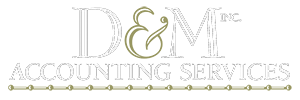It may sound cliche, but there’s a reason why people often refer to accounting as the language of business – it is. We’d like to extend that definition and argue that, at the individual level, accounting represents the language of financial independence. In the following, we’ll outline what financial independence means and the central role accounting provides in achieving this goal.

What is Financial Independence?
For some people, the idea of being financially independent is something like a myth, a status people talk about but that’s not actually achievable for most people. To break this thinking, it helps to actually define the concept. Broadly speaking, financial independence is achieved when someone successfully achieves one of the following two scenarios:
- The income scenario: You don’t need to work, because passive income sources cover all of your living expenses (and will continue to do so through the end of your life).
- The “spend-the-savings” scenario: Your net worth exceeds your annual living expenses multiplied by the estimated remaining years of your life. For example, someone with $4,000,000 and 40 years left to live is financially independent if he or she can live on $100,000 per year.
Regardless of which of the following categories an individual falls into, there’s a readily apparent commonality: put simply, achieving financial independence means you no longer need to work to support yourself. The next question becomes, how can someone create a clear path to achieving this status?
Accounting, Defined

For a topic as seemingly complex as accounting, the dictionary definition is refreshingly straightforward: “the action or process of keeping financial accounts.” While the common view involves accounting in a business context, the fundamentals prove just as important – and effective – for personal finance.
At the individual or family level, the layman’s explanation of accounting comes down to being able to successfully answer three basic questions:
- Can you accurately assess your financial net worth?
- Can you accurately keep track of money coming into and going out of your bank account?
- Can you use the information from the above two questions to set and monitor your progress towards a future financial goal?
Accounting should not be an overwhelming and scary topic to non-accountants; rather, at a fundamental level, it involves understanding net worth and cash flows, and using that understanding to set and achieve financial goals.
How Embracing Accounting Principles Can Lead to Financial Independence
Having outlined both the concept of financial independence and the basic definition of accounting, it’s important to now tie the two together. As stated above, you achieve financial independence upon either A) having enough passive income to cover your expenses for the rest of your life, or B) your net worth allowing you to gradually spend your savings for the rest of your life while still covering your living expenses.
Both of the above rely upon a critical assumption: the ability to accurately measure (and project into the future) living expenses and the cash needed to cover those expenses, something easily achieved with some accounting basics:
- A balance sheet is simply a snapshot of your wealth at a given point in time. It lets you know where you stand financially, and it sets the foundation for future planning.
- A profit and loss statement monitors your income and expenses over a given period of time. It gives you a clear sense of what your living expenses are, and how much money you have coming in to cover those expenses.
- A financial forecast takes what we know about your present financial situation to estimate future results. It provides an informed estimate of your financial situation moving into the future, based on your current situation and key assumptions.
While these three terms may more commonly be used with business financials, they also provide a framework for individuals to measure progress towards financial independence. Understanding your personal balance sheet (net worth) and profit and loss (income and expenses over a period of time) allow you to chart an accurate path to financial independence.
Accounting should not be viewed as a foreign language. Instead, accounting basics should be embraced as tools to facilitate your journey to financial independence.
Accounting questions? We’d love to help! Please contact D&M Accounting Services here.

